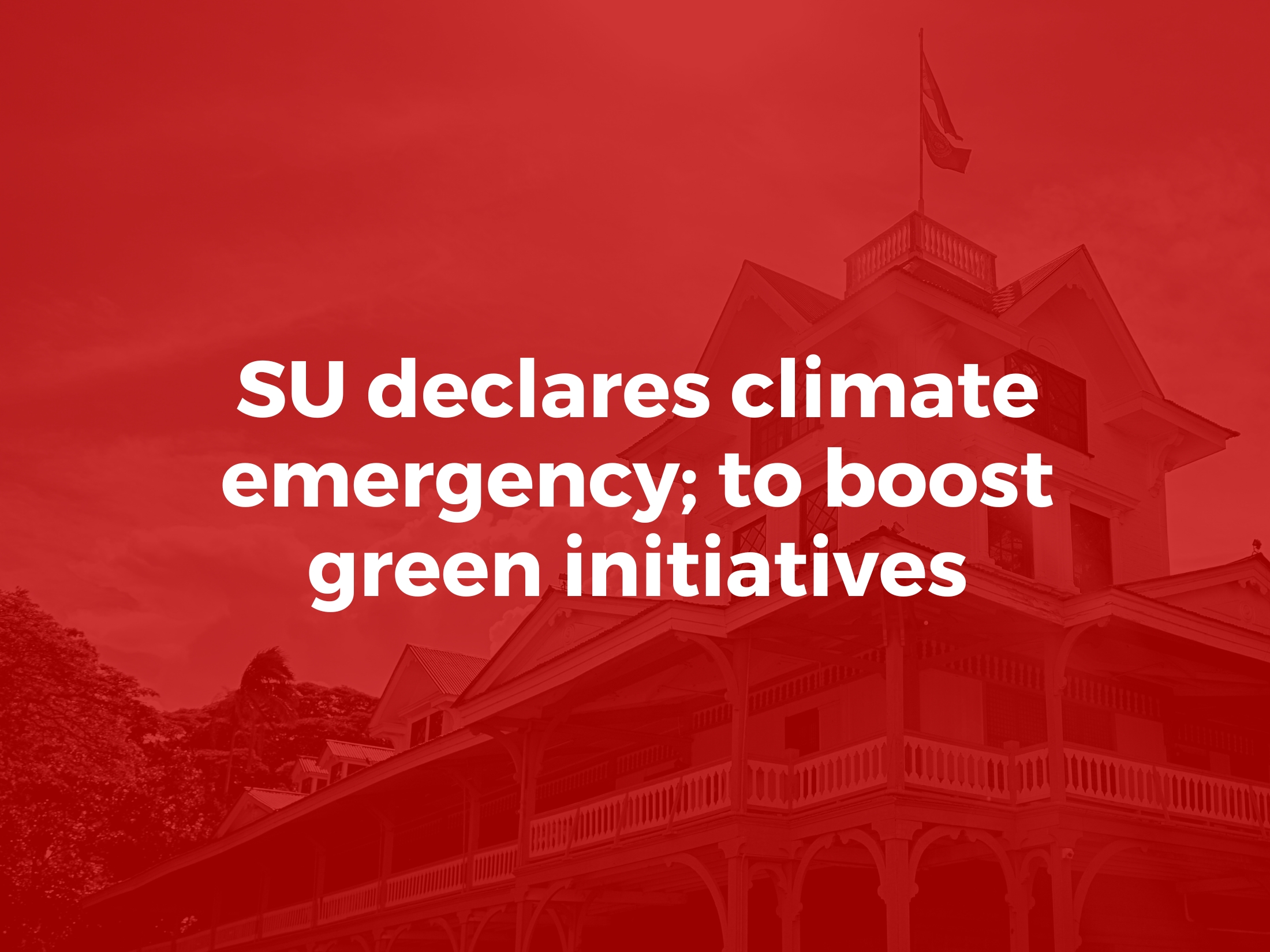
SU declares climate emergency; to boost green initiatives
Silliman University (SU) declares a climate emergency as a call for urgent action to reduce human activities that cause climate change and to strengthen its existing environmental protection policies.
Dr. Betty Cernol McCann, SU president, said the declaration serves as an organizing framework for all the university’s environmental advocacies that include the use of renewable energy, on-campus waste management, planting of indigenous tree species, wildlife protection, preservation and restoration of marine habitats, and several other environmental activities planned in classrooms and carried out in several communities.
In the declaration, SU “acknowledges that the science of climate change is well-established, that climate change is real, that its main cause is human activities especially the burning of fossil fuel, and that its consequences are grave.”
Dr. Angel C. Alcala, National Scientist and vice chair of the SU Board of Trustees, said scientists are convinced that the “destructive effects” of climate change are caused by the burning of coal and fossil fuels to generate electricity.
“What these countries now need is to generate electricity from natural and renewable sources,” said Alcala.
Accelerate mitigation efforts
The declaration urges local and global authorities to accelerate climate mitigation efforts in limiting the global average temperature increase, to avoid the “irreversible” impacts of climate change.
Alcala said countries all over the world suffer from the direct and indirect effects of climate change, such as frequent typhoons and loss of food supply.
The declaration emphasizes that the Philippines is “especially vulnerable” to the extreme weather events caused by increasing global average temperatures. Global average temperatures rise because of greenhouse gases, which trap heat in the atmosphere.
“These climate change effects have killed many people and destroyed natural ecosystems. Tropical reefs, for example, have suffered coral reef destruction resulting in the loss of fish and other marine species serving as food for people. Many other resources of the world stand to lose their economic value,” said Alcala.
Commitment to the planet
The declaration lists SU’s existing initiatives to reduce its greenhouse gas emissions,
which are: the use of solar panels and renewable energy, the implementation of a Zero Waste strategy to reduce waste, and the declaration of the SU campus as a wildlife sanctuary to protect biodiversity in SU.
Aside from these existing initiatives, SU laid out its plans to strengthen its commitment to mitigating climate change.
SU plans to identify pathways to become a carbon-neutral university by 2030 or sooner; mobilize more resources for action-oriented climate change education and service learning in the University; and create a University Climate Adaptation and Mitigation Committee from various sectors of SU and its community to generate ideas and create broad-based momentum for acting on the declaration.
SU will also continue utilizing 100% renewable energy as a source of electricity; supporting research on climate change mitigation and adaptation and the application of research results to benefit society; and supporting and collaborating with various stakeholders, particularly, the Philippine government, local government units, non-governmental organizations, civil society organization, and movements in their climate change mitigation and adaptation efforts.
Commitment to people
SU affirmed that mitigating climate change is part of its commitment to the current and future generations and that ensuring a “healthier planet and climate-safe future” is part of its commitment as a Christian higher education institution.
The declaration states: “[SU] is aware that children and youth, our future and current students, are among the most vulnerable to the impacts of climate change, and by declaring a climate emergency, we call for their protection and future well-being.”
Dr. Jorge Emmanuel, an adjunct professor at SU and a Balik Scientist of the Department of Science and Technology, said: “As one of the original 11,000 scientists from 153 countries who signed the ‘World Scientists’ Warning to Humanity of a Climate Emergency’ in 2019, I commend the Board for recognizing that we face an urgent and catastrophic threat. Bold transformative actions are needed to protect our biosphere as we approach climate tipping points. It is a responsibility of those in power and all of us to do all we can for current and future generations. I am proud that Silliman University is showing the way.”
The SU Student Government Environment Committee said in a Facebook post: “We celebrate this declaration as a victory of the university, particularly the students who advocated for it, and of course, the planet. We are grateful to the university’s Board of Trustees, especially to the University President, Dr. Betty McCann, for recognizing that students and young people are among the most vulnerable to the impacts of climate change. We are also looking forward to collaborating towards materializing the commitments made by the university to ensure a climate-safe future as the first-ever university in the country to declare a climate emergency.”
Read SU’s declaration of a climate emergency at https://su.edu.ph/su-climate-emergency/


